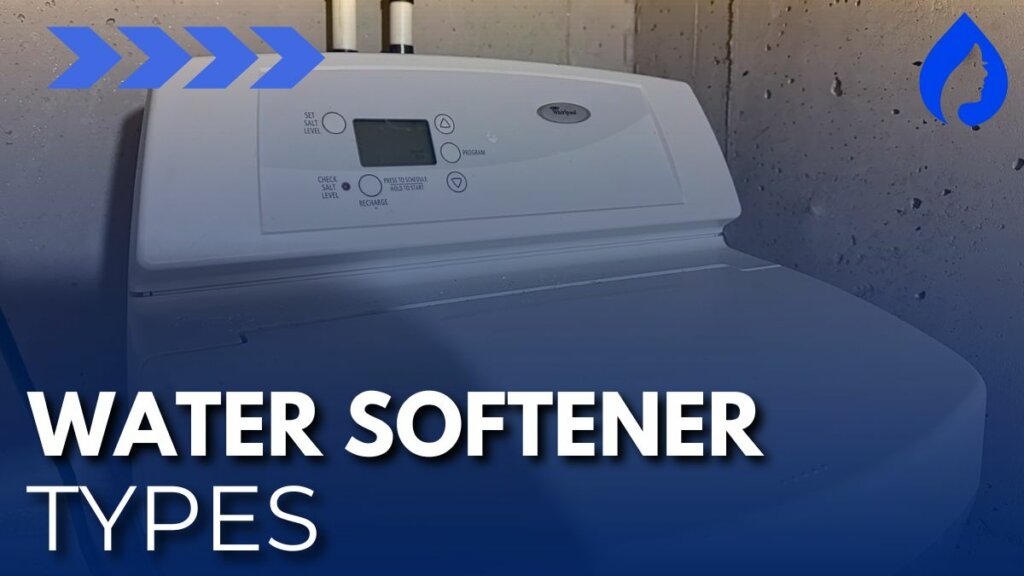
Water softener systems can be categorized based on:
If you need a continuous supply of softened water, consider a dual-tank water softener with no downtime for the regeneration cycle.
Such highly efficient systems work best in commercial settings with uninterrupted water supply needs.
Continue reading to learn more about the seven types of softeners available and decide which suits your specific needs.
👉Types Of Water Softener Systems For Home Explained!
⚙️Based on Working
Based on how the water softener system works, there are four different kinds of water softeners:
🧂Salt-Based Water Softener
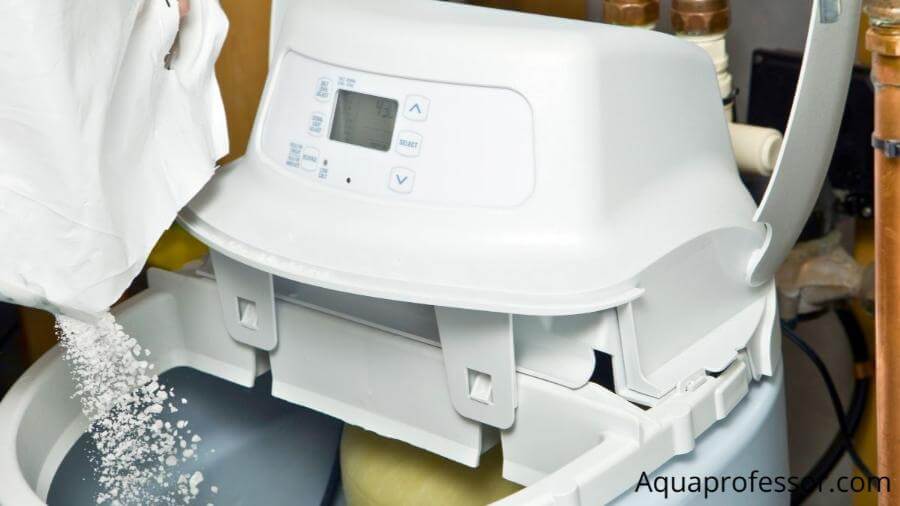
Salt-based water softeners (also known as ion exchange water softeners) are the most popular and highly effective systems for removing issues related to hard water.
They can handle water hardness levels of more than 10 GPG.
They work on the principle of ion exchange, where tiny beads of resin molecules exchange hard water minerals like calcium and magnesium with either sodium ions or potassium supplied by the salt.
A salt-based water softener has three major components:
Advantages:
Drawbacks:
💦Salt-Free Water Softeners or Conditioners
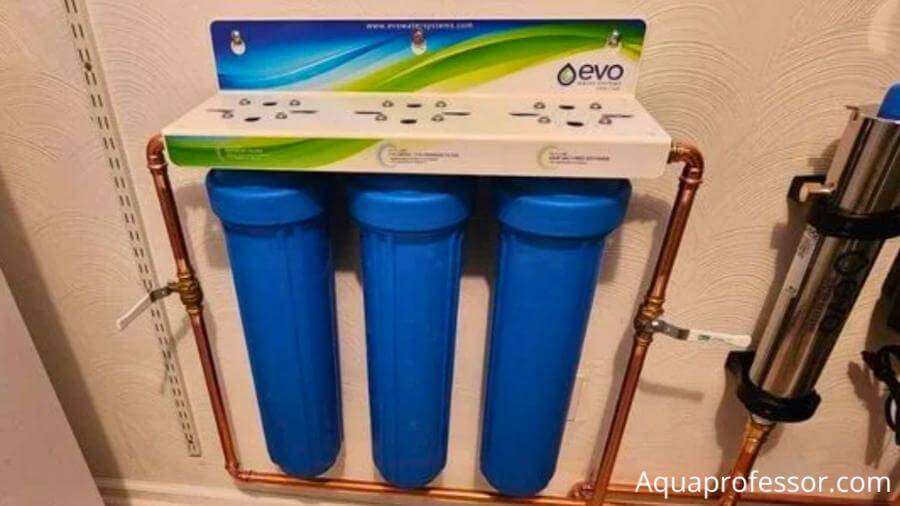
Salt-free water softeners or water conditioners provide a low-maintenance alternative to salt-based softeners.
The main component of salt-free systems is a conditioning tank with an embedded template or catalytic media.
It uses the Template-Assisted Crystallization (TAC) system to transform hard minerals from water into a crystalline form that doesn’t stick to surfaces.
Salt-free softeners are useful for water with a hardness level of less than 10 GPG. Also, it doesn’t use salt and is safe for people on a low-sodium diet.
Although these are called “softeners,” saltless water softeners do not remove the hard water minerals from the water but instead change or condition them structurally to reduce scale buildup.
Advantages:
Drawbacks:
🧲Magnetic Water Softeners
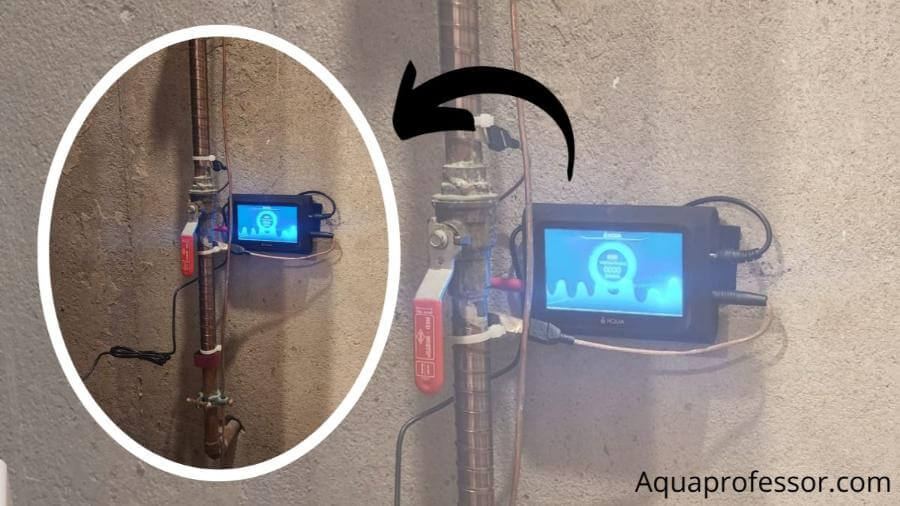
Magnetic water softeners are more of a descaler than a water softener that works by applying a magnetic field.
Such devices require a power supply to generate electromagnetic fields. The main component of magnetic softeners are the magnetic coils, which you need to incorporate into your plumbing system.
Once you supply the electricity, the magnetic coils generate an electromagnetic field around the flowing water.
This alters the physical properties of the hard chemicals to neutralize their charges and precipitate them as a soft scale.
Hence, using these softeners may reduce your scaling by up to 50%, less effective than salt-free water conditioners.
Advantages:
Drawbacks:
🔁Reverse Osmosis Water Softeners
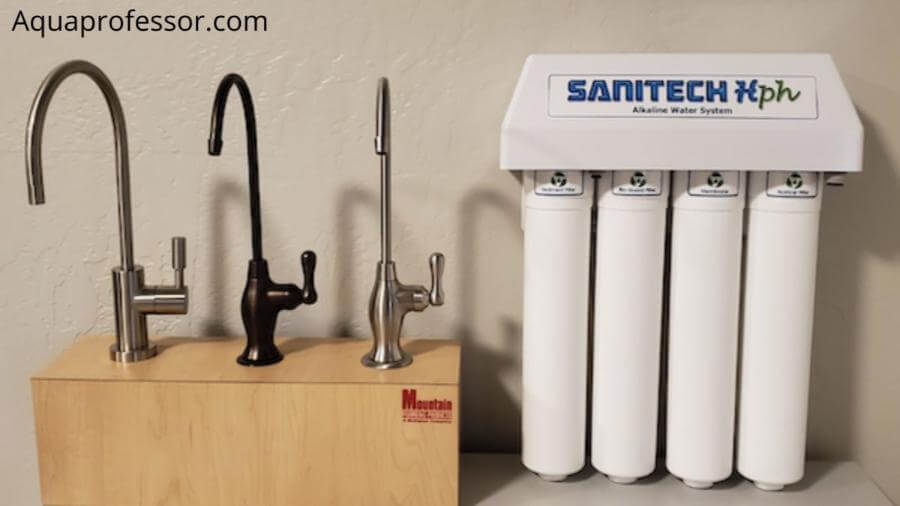
A reverse osmosis system isn’t a true water softener. Rather, they use a semipermeable membrane or filter to separate the solid impurities from the water.
The reverse-osmosis systems may contain several prefilters, like carbon filters or sediment filters, a thin semi-permeable membrane made up of thin film composite (TFC) materials
It may also come with some post filters to block 99.9% of solid contaminants like ions, sediments, chlorine, heavy metals, and other minerals.
This filter removes a small amount of hard minerals (less than 7 GPG). However, if you use it for hardness grains that are larger than 7, it may clog the pores.
Advantages:
Drawbacks:
🎯Based On Where It Is Used
There are some common types of water softeners based on where you want to use them:
🏠Whole House Softeners
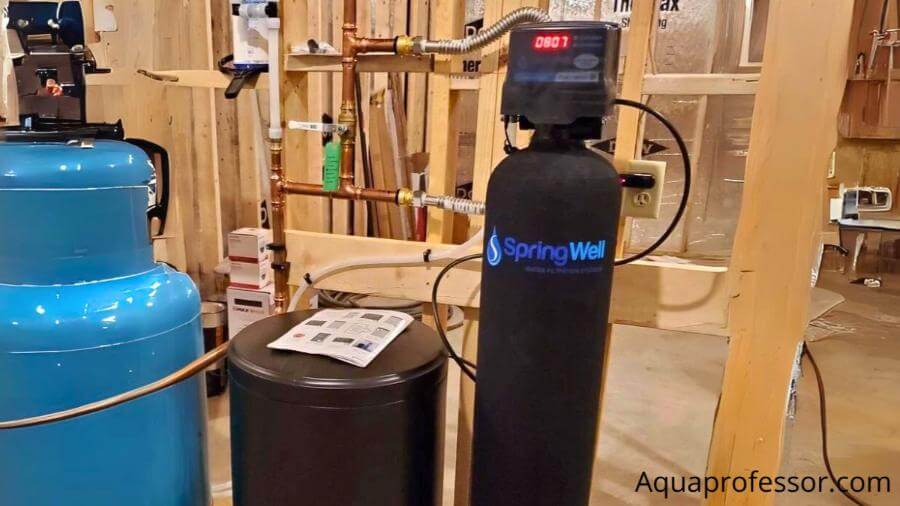
If you want to solve hard water issues in the entire household, look no further than a whole-house water softener.
Whole-house systems may have a salt-based system to remove hard water minerals and pre-and post-filters to remove other impurities.
POE (Point-of-Entry) softeners can have a separate filtration and softening unit (independent filter-softener combo) or a two-in-one merged system with functions of both.
Also, if you live in an apartment, consider buying an RV or apartment water-softening system.
It is compact, easy to install, portable, requires minimal maintenance, and is cost-effective (as you can top up with regular table salt).
🚿Shower Head Softeners
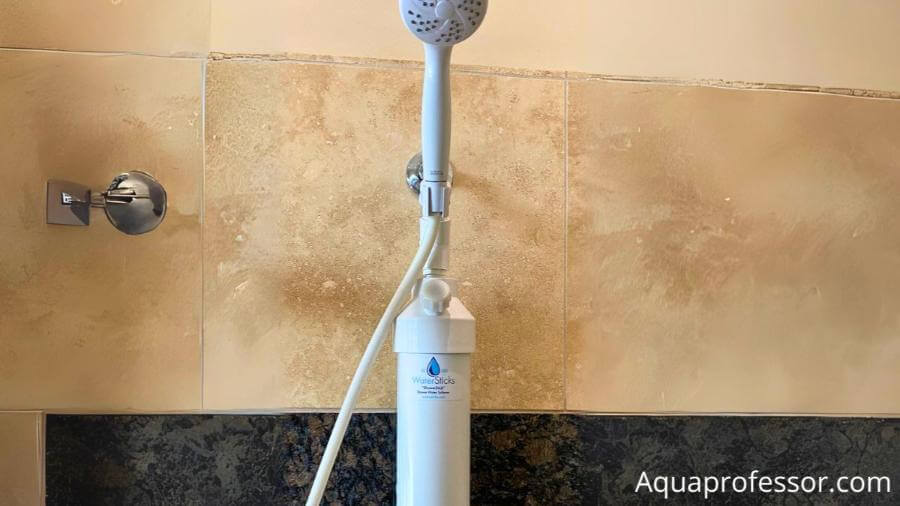
If you often face dry skin and itchy scalp issues, shower head softeners will be your best choice. These are point-of-use systems for bathroom showers that reduce the mineral content in water and safeguard your skin and hair against hard minerals like calcium and magnesium.
While showerhead water softeners may come with filters to remove aesthetic impurities and chlorine from water, you shouldn’t confuse “filters” with showerhead “softeners.”
It works similarly to salt-based models and is best for localized softening. Furthermore, it comes with replaceable filters, is easy to install, cost-effective, and requires no plumbing modification.
However, you may need to replace the water filter from time to time to maintain its usefulness.
For the best result, consider purchasing the ShowerStick water softener.
Other than the above ones, there are some special water softener systems you might want to consider for your specific needs:
💦Dual-Tank Water Softeners
A dual-tank water softener can be an excellent choice for large households, hotels, or other commercial settings that require a high supply of soft water per day.
These are high-end water softeners with two resin tanks filled with resin beads to exchange hard water minerals continuously in a larger volume.
In dual tank softeners, one tank works while the other undergoes the regeneration process, allowing it to continuously provide soft water.
The control valve monitors the water usage and switches between the two tanks when needed.
Like traditional models, dual tank systems work on ion exchange technology with minimal downtime.
Some drawbacks of dual tank water softeners include large space requirements, complex installation processes, and higher electricity bills.
💡Types Of Water Softener Systems: FAQs
Which is better, salt or a salt-free water softener?
Salt-based water softener is better if your water has a high concentration (~10 GPG) of hard minerals.
What water softener size do I need?
You can decide your water softener size based on this formula:
Average Daily Water Consumption x Water Hardness (grains per gallon) x 3 (REGEN frequency in days)
So check your water hardness and factor in your family size to opt for an ideal water softener. Common water softener sizes include 32K, 48K, and 64K grains.
Can you get a water softener for just a bathroom?
Yes, you can get a water softener for just a bathroom.
Showerstick is a shower water softener designed for the bathroom and works on the same ion-exchange principle as traditional water softeners.
What are the top water softener brands?
Here is a list of the top water softener brands in 2024:
1. Clack
2. Kinetico
3. GE
4. Waterboss
5. Genesis
6. Culligan
7. Morton
8. Kenmore
Is it worth having a water softener?
Yes, buying a water softener is worth it if you face hard water issues like:
1. Soap not lathering
2. Dry and itchy hair and skin
3. Limescale deposits on appliances like water heaters
4. Unpleasant taste, odor or appearance
5. Heavy minerals clogging and low water flow in pipes and faucets
6. Staining on clothes or utensils
Adarsh is a Health & Nutrition Sciences graduate with expertise in environmental health. He is associated with ventures like Glacier Fresh Filter and Simpure Filter Systems. Through Aqua Professor, he intends to provide helpful information to every home to help them make smarter decisions.
